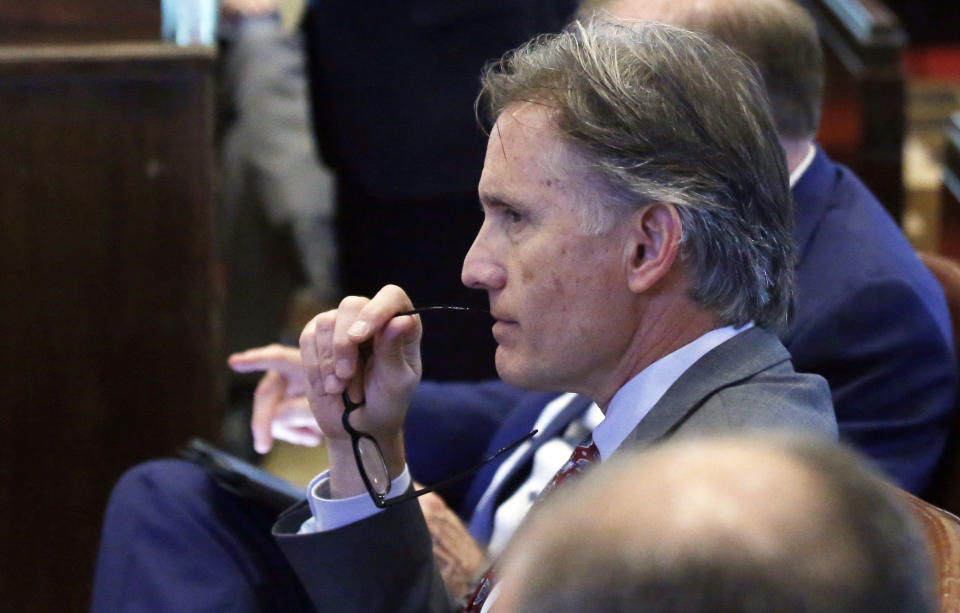JNJ moves to dodge opioid bullets, but other drug names face uncertainty
Massive opioid litigation, which has spawned thousands of lawsuits against several drug makers and distributors at the heart of the addiction crisis, has raised questions about which ones will survive the legal onslaught.
Late Tuesday, drug giant Johnson & Johnson (JNJ) announced that it would settle 2 opioid lawsuits in Ohio for more than $20 million, in a bid to avert a trial. It was the latest development in a far-reaching saga that’s cast a shadow over some of big pharma’s most influential players.
Allergan (AGN), which also settled with Ohio, will shell out $5 million. Meanwhile, Purdue Pharmacy, the maker of OxyContin, is already working on settling the more than 2,000 lawsuits it faces, and is also filing for bankruptcy. Insys Therapeutics, another opioid maker, was the first to file for Chapter 11 bankruptcy after announcing a $225 million settlement in its case.
According to a recent report by ratings firm S&P Global, JNJ and AGN face the lowest risk in the legal battle — an argument bolstered by their recent actions on their credit. Both Moody’s and S&P recently affirmed J&J’s top-notch AAA rating, after a landmark ruling in Oklahoma slapped the giant with a $572 million judgement.
The JNJ Ohio settlement shines a favorable light on the companies for investors, according to a report by Credit Suisse issued on Wednesday.
“We continue to believe increased clarity regarding the range of potential litigation-related liability facing the company should increasingly return the stock to trading and valuation based primarily on fundamentals,” the bank’s analysts wrote. “We view this news as a solid step in this direction, and reiterate our Outperform rating and $156 target on JNJ.”

However, there are question marks hanging over other pharmaceutical companies in the center of the opioid storm. Analysts say the potential weight of a big legal judgement could force smaller players to either fold completely, or be bought out.
“Every company has a different incentive to settle,” S&P analyst David Kaplan told Yahoo Finance on Tuesday. “When we take the pattern together, it really all collectively points to this being a greater risk than we had thought.”
There have already been a number of smaller settlements, ranging from the tens of millions to hundreds of millions. The largest settlement came from OxyContin maker Purdue Pharma—which offered a little more than $10 billion.
Yet every company has a different level of exposure that depends on the drug’s market share, or who had the strongest pain medications. According to S&P’s analysis, companies like Mylan (MYL), Cardinal Health, McKesson and AmerisourceBergen are considered “medium risk bucket” — but names like Teva (TEVA), Mallinckrodt (MNK) and Endo Pharmaceuticals (ENDP) face the highest risk.
“All these companies have been downgraded by S&P over the past year, and opioid issues contributed to downgrades in some cases,” S&P’s analysts wrote.
Mallinckrodt has already reportedly hired a restructuring firm, the news of which resulted in a negative hit in the markets earlier this month. And Teva has indicated greater anticipated liabilities, Kaplan said on Tuesday.
Teva is not required to indicate further liabilities unless it is probable, and the company indicated they were keeping reserves at $646 million. Given that the most recent settlement was $85 million, the larger provision hints at greater anticipated liability.
Meanwhile, some of the bigger companies like Johnson & Johnson are concerned about their level of exposure, given their relative financial strength — and the lack thereof of the other defendants, analysts say.
Recent reports suggest the remaining companies are trying to piggyback on Purdue bankruptcy settlement, but without filing bankruptcy themselves, to be free of any future opioid liabilities. One company, Endo Pharmaceuticals, confirmed to Yahoo Finance on Tuesday that the option was on the table.
“Endo continues to explore various global settlement mechanisms to resolve the pending opioid litigation, including, among others, a construct that could potentially be implemented through Purdue Pharma’s recent bankruptcy filing,” according to a statement emailed by the company.
“We are engaged in preliminary discussions with key stakeholders regarding this matter but there can be no assurances that those or any other discussions will be successful. We have no further comment at this time.”
A year ago, Endo’s stock was trading at $17.37 per share; it closed at $3.34 in Tuesday’s dealings.

Anjalee Khemlani is a reporter at Yahoo Finance. Follow her on Twitter: @AnjKhem
Read the latest financial and business news from Yahoo Finance

 Yahoo Finance
Yahoo Finance 